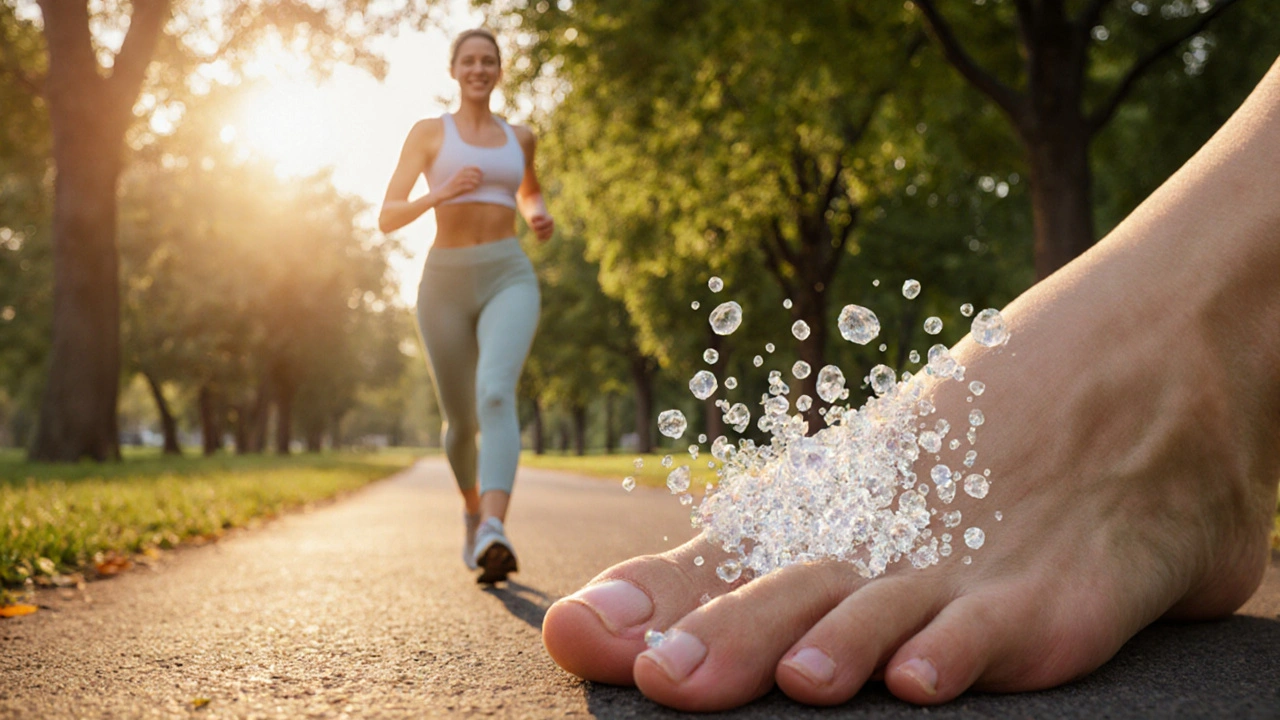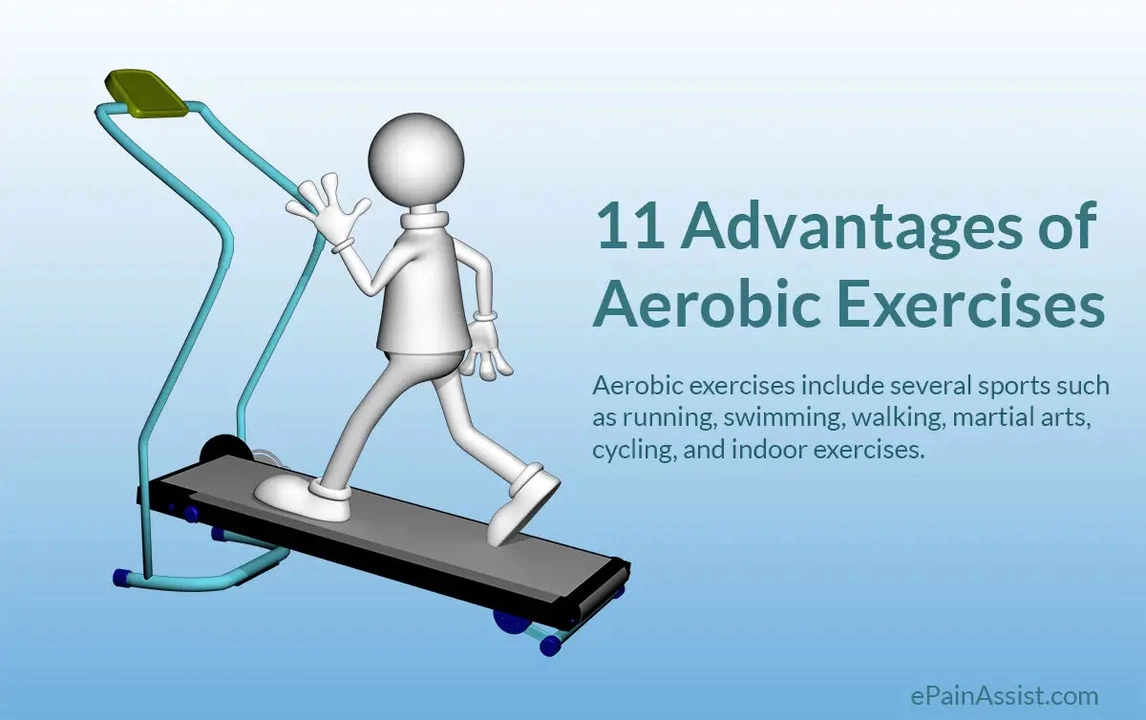Fitness and Exercise: Simple Steps to Move More and Feel Better
Most people think fitness means long gym sessions. It doesn't. You get real benefits from small, consistent moves - daily walks, short strength sets, and simple stretches. Those add up. If you want better energy, mood, digestion, or sleep, start with easy habits you can actually keep.
Practical daily moves
Walk 20-30 minutes after meals. I do this after dinner and my digestion improves. Try three 10-minute brisk walks if one longer walk feels hard. Add two 10-minute bodyweight sessions each week: squats, push-ups, and planks. Do 2-3 sets of 8-15 reps to build strength without fancy gear. Stretch hips, hamstrings, and chest for 5 minutes after workouts to reduce tightness and protect joints.
Mix in a short high-intensity session once a week if your health allows. Ten minutes of intervals - 20 seconds hard, 40 seconds easy - raises fitness fast. Keep intensity you can sustain and check with a doctor if you have chronic conditions.
Make it part of life
Schedule activity like an appointment. Use phone alerts, join a short class, or pair exercise with something pleasurable - music, a podcast, or a friend. Carry a water bottle and keep sneakers handy. If motivation dips, lower the bar: do five minutes of movement. Often that five minutes turns into 20.
Track progress simply. Log sessions in a note app or mark days on a paper calendar. Aim for 4-5 movement days per week and one longer session. Increase time or reps slowly - about 5-10% per week - so you avoid injury and keep momentum.
Small choices matter: take stairs, stand for phone calls, park farther away. These choices add non-exercise activity thermogenesis (NEAT) that burns calories and keeps joints moving. For desk workers, stand for 5 minutes every hour and do a quick hip opener or shoulder roll.
Fitness helps digestion. One of our articles explains how regular activity eased chronic idiopathic constipation for a reader who started walking daily and stretching. Physical movement stimulates your gut and can improve bowel consistency and timing. If constipation persists, see a clinician for testing and guidance.
Set clear, personal goals. "Walk 30 minutes five days a week" beats vague goals like "be more active." Celebrate small wins: add a minute to a walk, hold a plank longer, or hit a weekly target. Keep progress visible and adjust goals when life changes.
Keep it safe. Warm up before intense work, cool down, hydrate, and listen to pain signals. If you have heart disease, joint issues, or recent surgery, check with a healthcare provider before trying high-intensity work.
Want easy plans? Start with 20 minutes of walking daily for two weeks, add two short strength sessions in week three, and include one interval session in week five. You'll feel stronger and more energetic fast.
If you want more guidance, check our Fitness and Exercise category for easy routines, beginner guides, and user stories. Start small, be consistent, and ask questions in the comments - I'll answer based on practical experience and tips.
Exercise and Gout: How Working Out Lowers Uric Acid Levels

Learn how regular exercise lowers uric acid, reduces gout flare‑ups, and fits into a comprehensive gout‑management plan. Get safe workout ideas, a weekly schedule, and key FAQs.
- October 12 2025
- Tony Newman
- 17 Comments
The Benefits of Regular Physical Activity for Chronic Idiopathic Constipation

As someone who has suffered from chronic idiopathic constipation, I can attest to the incredible benefits of regular physical activity. By engaging in consistent exercise, I've experienced improved bowel movements and overall digestive health. This is because physical activity stimulates our muscles, including those in our intestines, helping to move waste more effectively. I highly recommend incorporating exercise into your daily routine, as it not only alleviates constipation but also boosts your overall well-being. Remember, even simple activities like walking or stretching can make a significant difference in managing chronic idiopathic constipation.
- May 6 2023
- Tony Newman
- 10 Comments
